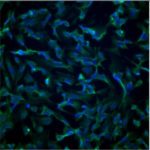Lien vers Pubmed [PMID] – 29685979
Philos. Trans. R. Soc. Lond., B, Biol. Sci. 2018 Jun;373(1748)
The ability to target DNA specifically at any given position within the genome allows many intriguing possibilities and has inspired scientists for decades. Early gene-targeting efforts exploited chemicals or DNA oligonucleotides to interfere with the DNA at a given location in order to inactivate a gene or to correct mutations. We here describe an example towards correcting a genetic mutation underlying Pompe’s disease using a nucleotide-fused nuclease (TFO-MunI). In addition to the promise of gene correction, scientists soon realized that genes could be inactivated or even re-activated without inducing potentially harmful DNA damage by targeting transcriptional modulators to a particular gene. However, it proved difficult to fuse protein effector domains to the first generation of programmable DNA-binding agents. The engineering of gene-targeting proteins (zinc finger proteins (ZFPs), transcription activator-like effectors (TALEs)) circumvented this problem. The disadvantage of protein-based gene targeting is that a fusion protein needs to be engineered for every locus. The recent introduction of CRISPR/Cas offers a flexible approach to target a (fusion) protein to the locus of interest using cheap designer RNA molecules. Many research groups now exploit this platform and the first human clinical trials have been initiated: CRISPR/Cas has kicked off a new era of gene targeting and is revolutionizing biomedical sciences.This article is part of a discussion meeting issue ‘Frontiers in epigenetic chemical biology’.

